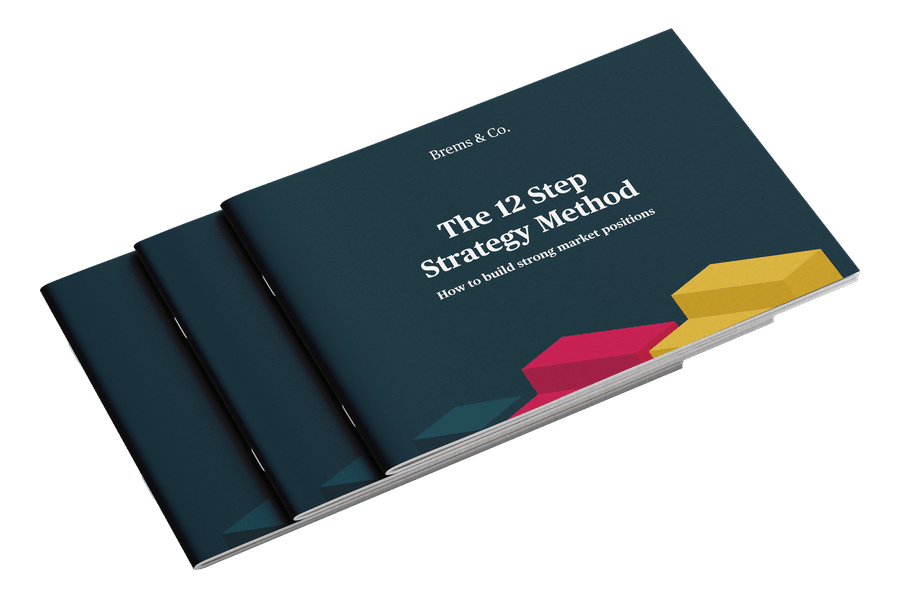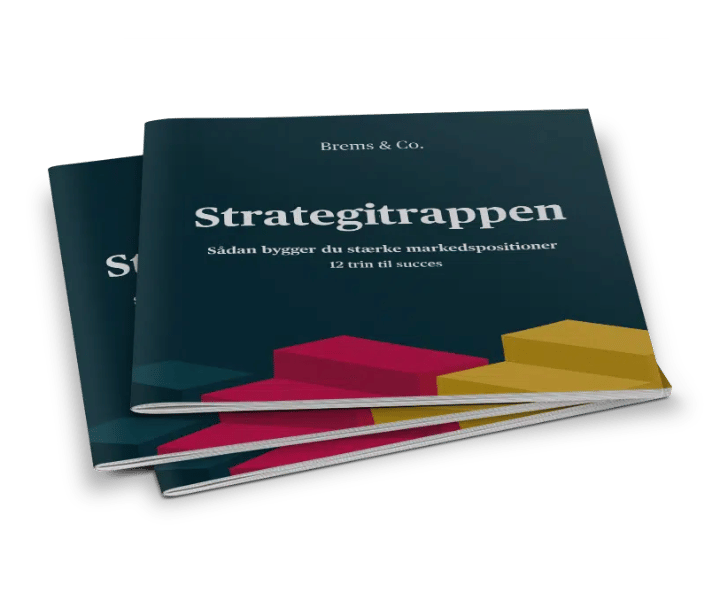The 5-year plan is dead - what now?
Everyone is talking about it. Especially senior boards with many years of experience from big prominent companies and progressive consultants in nicely ironed shirts. The famous 5-year strategy plan that has to ensure companies’ growth, revenue and success for many years to come. The strategic objectives have to be identified, often based on a SWOT-analysis, and then subgoals and action plans have to be made in order to reach the target – and boom – we are there. There is just one challenge. You can’t do that in 2021 – and Covid-19 is (unfortunately) a good example of why. Here are 5 suggestions of what you can do instead.
by Martin Brems, strategic advisor and founder, Brems & Co., 13 May 2021
Think in hypotheses
If you were to ask an executive today, the role as “managing director of everything” is significantly differnet compared to only 10 years ago. Focus has increasingly shifted from creating “shareholder value” to creating “stakeholder value”. In other words: it is the role of the managing director to be more visible and present to a much greater extent than before for employees, incoming talents, management, board, shareholders and not least society and relevant others.
“To a much greater extent, your strategy has to be seen as a shifting set of hypotheses that continuously have to be tested and validated."
The world has become more complex and unpredictable, and your strategy should reflect this by, to a much greater extent, being seen as a shifting set of hypotheses that continuously have to be tested and validated. This requires a shift in the way you develop and execute your strategy. First of all, you have to break with the belief that you can calculate everything in advance. Subsequently, you need to focus on creating measurable value through effect and not just through hard KPIs. In brief: your future strategy process defines a number of hypotheses, which will be tested and validated through ideas, pilot projects and prototypes, and continuously adapted to the needs of the consumers and the market.
Get closer to your customers
It is exactly focus on the needs of the market and the consumers that is in short supply at many companies. Many companies, big as well as small, have still not realized that a multitude of new start-ups are emerging – maybe exactly in their industry – because they have identified a need – and are now acting on it. Many companies are “stuck in operation” and “are busy servicing their customers” as they say, just to delay the inevitable. Change. And the change starts with yourself. But it requires you to start looking beyond the tip of your nose and to get closer to your market, your customers – and to follow and understand their behavior and needs, and test your hypotheses continuously, so you can react in time before an ambitious start-up does – and (over)takes your business.
Your purpose becomes governing – not your products
Many companies start their strategy process based on what they have on “the shelves”, instead of thinking about what is in demand on “the shelves”. As a result, you need to have the courage to ask yourself this question in a strategy process: “what would I do, if I had to start anew in this industry?”. So, if you as a leader need to focus on two areas, they should be: 1) your purpose and 2) your core business.
“Your products no longer propel your business; it is your purpose and your core business."
You have to admit that your products no longer propel your business; it is your purpose and your core business. Purpose is defined as the difference you want to make in the market, together with the need you want to fulfill (some would also call it vision and mission) – and the core business is defined as the thing you are best at and can make a profit doing. It is about continuously developing and adapting products and services around the purpose and the core business.
Focus on attracting the best employees
The more attractive your purpose is, and the sharper defined your core business is, the easier it will become to attract the talented employees. And talented employees attract other talented employees. That’s how it is. When it is no longer your products that govern, but your purpose, then your most important area of focus as a leader becomes the employees and your ability to attract talents, in order to ensure competitiveness and growth.
Your communication as a leader becomes paramount
All of the statements above are important, but to bring them into play, you need to have one vital ability: communication. As a leader, you need to get the purpose and the core business into play, every time you communicate with your employees, and most importantly of all: explain how the individual employees can contribute.
Simultaneously, as a leader you need to be able to explain the purpose in a short, precise, inspiring and visionary manner – in the same way, again and again. On social media, at conferences, network meetings, for journalists, for employees, business partners, board and shareholders.
The 5-year plan is not dead – but the road to get there is not like it was before. It takes a mindset which dares to believe in a new and differnet approach to the market and the customers and a wider perspective and focus as a leader.
If this has inspired you to get started on your 5-year strategy plan in a new and differnet way, then you are welcome to check out our “Strategy Method – 12 steps to growth” at www.brems.dk/the-strategy-method. It is based on our experience with over 100+ brands throughout the last 7 years. Happy planning!
5 good pieces of advice for your future strategy:
- Admit that you, from now on, have to work with hypotheses that need to be continuously validated, not a multi-year strategy plan
- Admit that you and your company does not always know best
- Admit that your purpose will be governing your business in the future – not your products
- Admit that your ability to attract the best employees will be paramount for it to succeed
- Admit that your ability to communicate your company’s purpose and core business – both internally and externally – will be crucial
Feel free to contact Martin if you have questions about the column at
Martin Brems
Tlf: +45 60 25 75 72.
Mail: [email protected]
Read more...
New business models require a new marketing approach
Even though we are truly tired of talking about the Corona Virus and what it has caused – and causes – for our lives, we must admit that the world has changed almost overnight.…
Welcome to Toyota Material Handling as a new customer at Brems og Co.
Toyota Material Handling is number 1 in the world within forklifts. We have the pleasure of having to help with customer insight and initiatives for increased conversion and sales…
Brems & Co. gets full marks in customer survey
We have a Net Promoter Score of 100. Our customers gave us 4.9 out of 5 in output and project management and Martin Brems received personal and professional praise.
Sustainability has to be the core of COVID-19 recovery
Temperature swings, irresponsible production and economic downturn. Sustainability has been on the agenda for years, but things have changed during the pandemic. Even though novel…
Sustainable marketing strategy for world-famous fitness brand
Most people who have seen the American Netflix series House Of Cards are also familiar with the beautiful handmade wooden rowing machine WaterRower from the company of the same…
Welcome to Megatrade as a new customer at Brems & Co.
For more than 40 years, Megatrade has offered individual customer-specific solutions and services to e.g. hinges and fittings, based on their customers' business. Brems & Co.…
Sports stars and directors throw themselves in the sand at beach volley
Olympic gold winner, bank director, and business owner. These are some of the titles of the members of a networking group that meets early in the morning to play beach volley.…
Brands need to be more human
If one good thing has come from the COVID-19 crisis, it would be that it has given us time and peace to reflect on what it means to be human and part of a family.
Brems & Co. is heading the launch of a new telecommunication company
Mobitel wanted to renew their branding, communication and brand awareness after 19 years of collaboration with TDC as TDC Erhvervscenter Odense – with the same products and…










